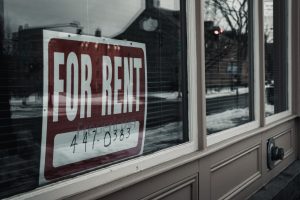 “Renters’ Responses to Financial Stress During the Pandemic [1],” a new paper jointly published by the Harvard Joint Center for Housing Studies [2] and the Urban Institute [3] takes a closer look at the impact that the COVID pandemic has had on the financial well-being of renters in the United States. Nationwide, renters have struggled to pay rent and other housing costs over the past year, which, in turn, have made it harder for policymakers to assess whether to aid renters, how much aid to provide, and how that aid should be delivered.
“Renters’ Responses to Financial Stress During the Pandemic [1],” a new paper jointly published by the Harvard Joint Center for Housing Studies [2] and the Urban Institute [3] takes a closer look at the impact that the COVID pandemic has had on the financial well-being of renters in the United States. Nationwide, renters have struggled to pay rent and other housing costs over the past year, which, in turn, have made it harder for policymakers to assess whether to aid renters, how much aid to provide, and how that aid should be delivered.
For “Renters’ Responses to Financial Stress During the Pandemic,” researchers Whitney Airgood-Obrycki [4], Ben Demers [5], Solomon Greene [6], Chris Herbert [7], Alexander Hermann [8], David Luberoff [9], and Sophia Wedeen [10] reviewed available data about renters who have been hard hit by the economic impacts of the pandemic. Most studies indicated that incomes fell for about half of all renters over the last year. Moreover, the losses were larger among renter households headed by people of color, with lower incomes, and younger people.
“A few surveys suggest that, early in the pandemic, as many as 40% of renters lost at least half of their income; a small recent survey found that, as of early 2021, this share had fallen to about 25% of all renters,” said the report [1].
As a means of survival, many renters accounted for these losses by tapping into cash reserves, with approximately 25%-40% of renters dipping into savings at some point during the pandemic just to pay rent. Borrowing from family and friends was another means of coping with income loss, with approximately 25% of all renters turning to this option including about half of renters who were behind on rent.
“Policymakers should also streamline screening for rental assistance programs and lift barriers to accessing aid,” said the report. “In addition, rental assistance programs should be designed to help close racial equity gaps, while complying with fair housing laws. Finally, policymakers should invest in more and better data on renters’ financial health and eviction risk. Taken together, these steps can not only help alleviate the problems created for renters by the pandemic, but address many of the longstanding inequities that have become more evident over the last year.”
Click here [1] to view the report ““Renters’ Responses to Financial Stress During the Pandemic.”